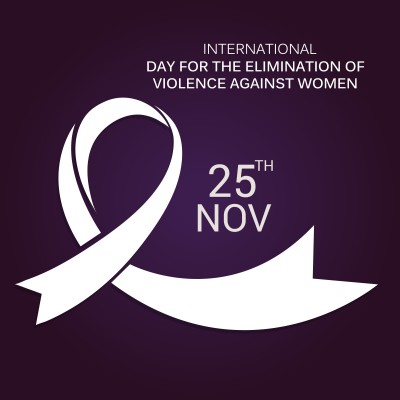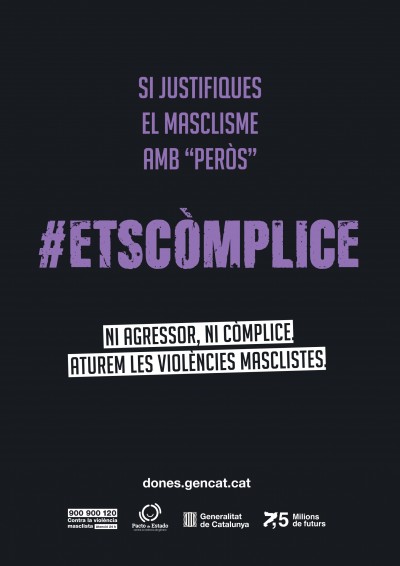
On November 25, it was declared an International Day against gender violence during the first Feminist Meeting of Latin America and the Caribbean held in Bogotá (Colombia) in 1981.
Every year, on the occasion of this appointed day, the Generalitat de Catalunya, the local regional governments of Barcelona, Girona, Lleida and Tarragona, the Barcelona City Council, the Federation of Municipalities of Catalonia and the Catalan Association of Municipalities agree on a manifesto to commemorate and make visible this event and everything it represents.
The ICAC Equality Committee has organized a joint reading of the manifesto to support the celebration of this cause.
International days are occasions to educate the general public on issues of concern, to mobilize political will and resources to address global problems, and to celebrate and reinforce achievements of humanity. The existence of international days predates the establishment of the United Nations, but the UN has embraced them as a powerful advocacy tool.
Each international day offers many actors the opportunity to organize activities related to the theme of the day. Organizations and offices of the United Nations system, and most importantly, governments, civil society, the public and private sectors, schools, universities and, more generally, citizens, make an international day a springboard for awareness-raising actions.
Data on gender violence
One in five women in the world has suffered sexual abuse in childhood, and one in three women has suffered physical or sexual violence by their partner at some time in their life (WHO). Report on the global situation of violence prevention (2014).
In Europe, 62 million Europeans have experienced sexist violence throughout their lives and one in three has experienced physical or sexual aggressions (European Agency for Fundamental Rights, 2014).
In Spain, so far this 2019, 51 women have been killed by their partners or ex-partners. This data would be greater if we counted the murders of women outside the scope of the couple or the ex-partner that the Spanish law against gender violence of 2004 considers.
In Catalonia, 51.3% of women have suffered sexist violence (excluding comments, sexual gestures or exhibitionism) throughout their lives. And 25.3% of women, one in four, have suffered some particularly serious aggression during their life cycle.
The 2019 campaign of the Generalitat de Catalunya focuses on the role of men in the fight against sexism and gender violence, with the message “Neither aggressor nor accomplice. Stop gender violence”.

Sexual harassment at work
According to a survey by the Department of Interior (Catalan government), a total of 20,393 women have suffered sexual or sex-based harassment at work in Catalonia, according to the Minister of Labour, Social Affairs and Families, Chakir el Homrani, with data from 2016. This data represents almost 12% of cases of violence against women by non-couples, which occur in the workplace.
Homrani released this information during the “Siege of Harassment” day, where he warned that this “is just the tip of the iceberg” because there are many cases that are not reported. He also stated that there is no victim profile because it is a transversal problem (source: El Punt Avui, November 8, 2019).





